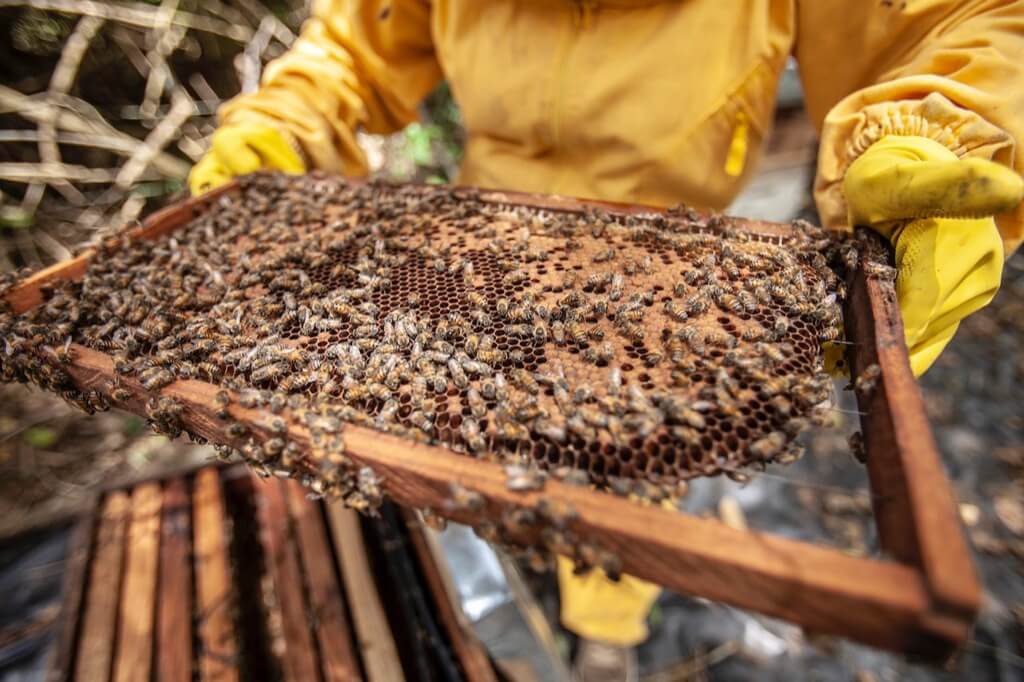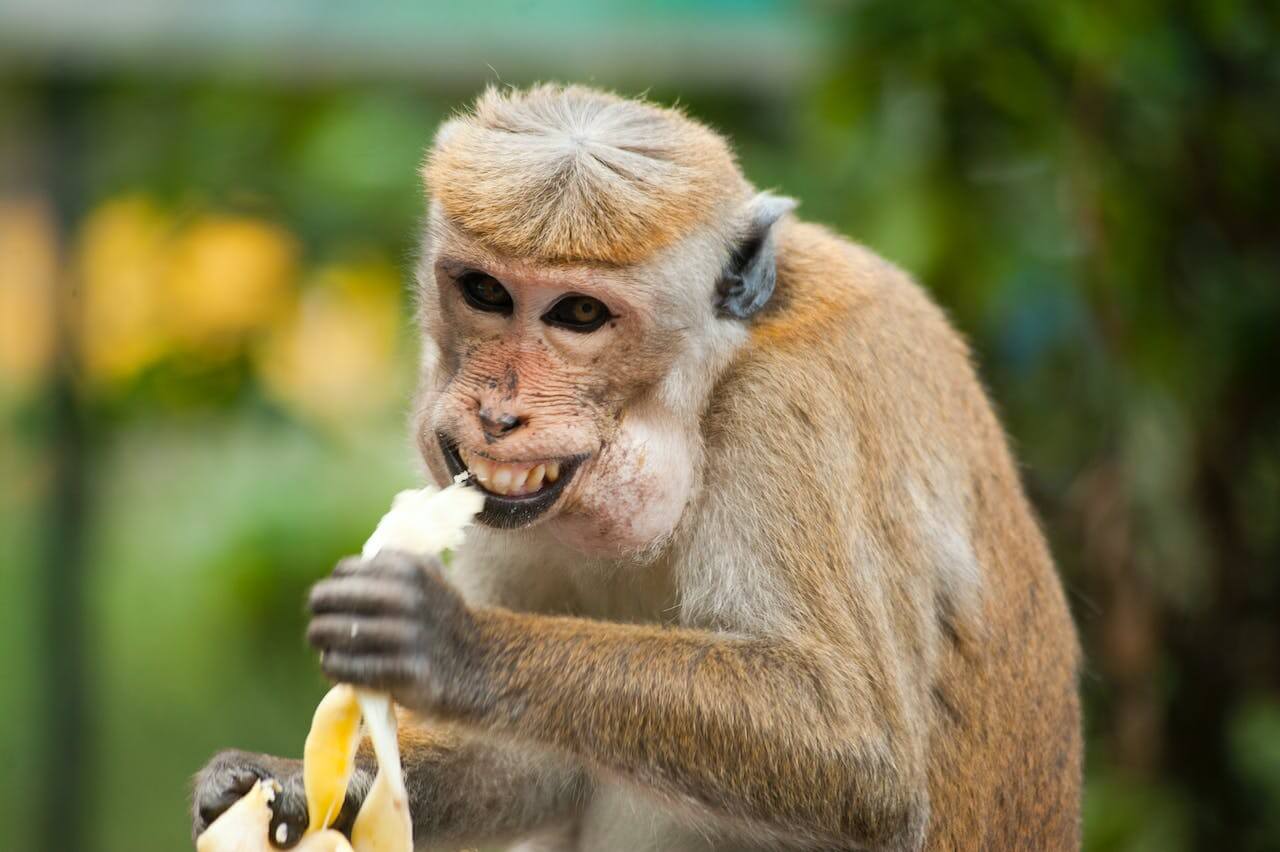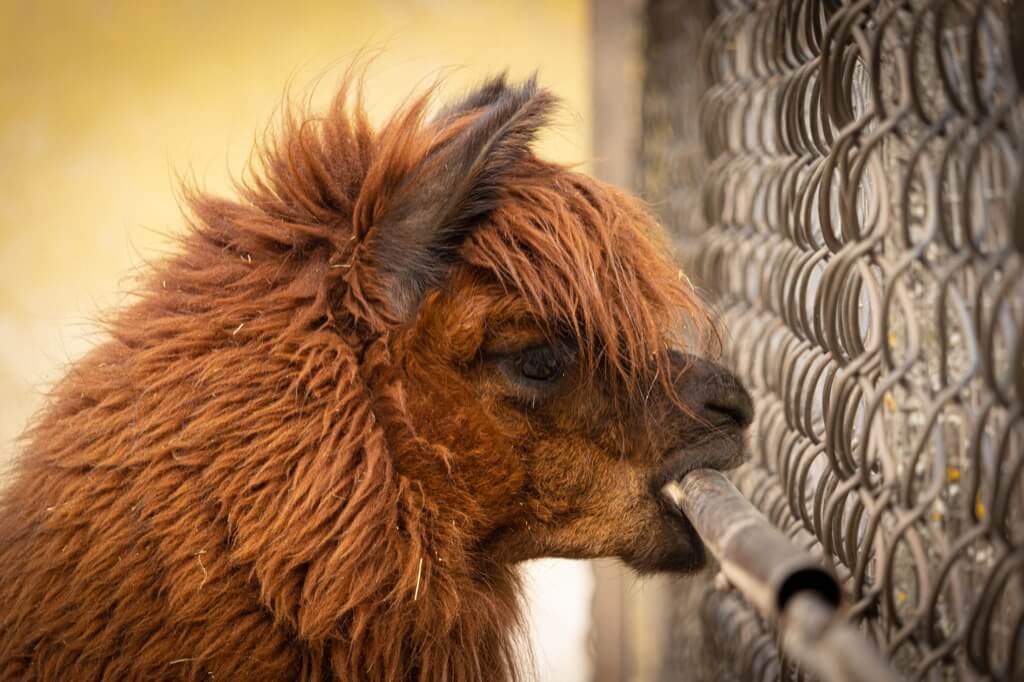Bees, often hailed for their tireless work ethic, are more than just nature’s diligent workers. They play a crucial role in pollinating crops, adding billions to the value of global agriculture. But here’s the sticky issue: Is honey, their sweet creation, truly a vegan-friendly food? Let’s explore this debate in the context of the vegan lifestyle.
The Sweet History Of Humans and Honey
The connection between humans and honey goes back thousands of years. A 15,000-year-old cave painting in Spain showcases a man collecting honeycombs, highlighting the ancient bond between us and these remarkable insects. In ancient Egypt, bees were revered, believed to have originated from the tears of the Sun God Ra, and celebrated for their honey production. This reverence extended to practices like floating bee colonies down the Nile to ensure crop pollination.
The Importance of Bees: Pollinators of Value
While honey is a delicious treat for us, bees serve a more significant purpose as pollinators. Their pollination services contribute an estimated $15 billion annually to crop value. This role makes them indispensable to agriculture and our food supply.
Honey Production Unveiled
Now, let’s delve into the honey-making process. Worker bees venture out in search of nectar, a sweet liquid produced by plants. They travel up to six miles, collecting nectar from various flowers. Back in the hive, the nectar transforms. Bees regurgitate and reprocess it, using digestive enzymes to break it down. Once the nectar becomes honey, it’s stored in a sealed honeycomb, preserved for the hive’s needs, including harsh winter months.
The Vegan Dilemma: Is Honey Acceptable?
The debate surrounding honey in the vegan community centers on ethical considerations. Founder of the Vegan Society, Donald Watson, coined the term “vegan” in 1944. He aimed to create a lifestyle free from cruelty to animals. His initial definition of veganism excluded honey, as he believed taking honey from bees constituted harm.
Commercial beekeeping practices often involve disturbing hives, isolating queens, and using smoke or antibiotics. These practices align with Watson’s view that honey production, as it stands, is not vegan.
Ethical Honey Production
Some argue that honey can be considered vegan if produced in a way that doesn’t harm the bees. In this approach, hives mimic natural habitats, allowing wild bees to take residence. These bees aren’t subjected to smoke, antibiotics, or pesticides. A gentle tap mechanism extracts excess honey without disturbing the bees.
The Gray Area: Insects and Veganism
An additional layer of complexity arises when considering whether insects, including bees, can experience pain. While some argue that insects lack the capacity for pain, it’s an ongoing ethical discussion.
Ultimately, whether honey aligns with veganism depends on individual beliefs and interpretations of the lifestyle. Groups within the vegan community may have varying stances on honey’s inclusion, making it a nuanced topic.
The Role of Beekeeping Ethics
The debate often revolves around the ethical practices of beekeepers. Some argue that commercial beekeeping, with its use of smoke, antibiotics, and frequent hive inspections, is inherently non-vegan due to its potential harm to bees. On the other hand, proponents of ethical beekeeping emphasize gentle and minimal interference, fostering an environment where bees can thrive without undue stress. This ethical divide raises questions about what truly qualifies as vegan-friendly honey production.
Bee Welfare and Colony Collapse
Beyond honey production, the overall welfare of bee colonies is a subject of concern. Colony collapse disorder (CCD) and the declining bee populations worldwide have sparked discussions within the vegan community. Some argue that consuming honey contributes to bee exploitation, while others contend that supporting responsible beekeeping may help safeguard bee populations by creating economic incentives for their preservation.
Can Bees Experience Pain?
The question of whether insects, including bees, can experience pain remains a matter of scientific inquiry. This intriguing debate adds a layer of complexity to the vegan honey discussion. While some assert that insects lack the neurological structures necessary for pain perception, others advocate for caution, calling for ethical treatment of all creatures, regardless of their pain perception abilities.
Honey Alternatives: Navigating Vegan-Friendly Sweeteners
As the debate over honey rages on, some vegans seek alternatives to satisfy their sweet cravings. This raises questions about the environmental impact and ethical considerations of alternative sweeteners like maple syrup, agave nectar, or even artificial sweeteners. Exploring the pros and cons of these alternatives within the vegan context offers a fresh perspective on sweetening choices.
Consumer Awareness and Labeling: Clarifying Vegan-Friendly Choices
Vegans often rely on clear labeling to make informed purchasing decisions. The debate here revolves around the labeling of honey products. Should there be standardized criteria for labeling honey as “vegan-friendly” or “bee-friendly”? Discussing labeling standards and consumer education can empower vegans to make choices aligned with their beliefs while fostering transparency in the industry.
The Bees’ Fate Hangs in the Balance
If you’ve followed the honey debate closely, you’re likely aware of the intense discussions surrounding its vegan status. But here’s a twist that might surprise you: the outcome of this debate could significantly impact the future survival of bee populations worldwide. You see, bees are facing unprecedented challenges that threaten their very existence, and your choice as a conscious consumer plays a role in shaping their future.
Balancing Honey Production and Bee Welfare
As you ponder whether honey is vegan or not, remember that bee welfare is at the heart of this ethical dilemma. Commercial beekeeping practices, aimed at maximizing honey production, often involve stress-inducing procedures for bees. The argument goes that if more consumers like you opt for honey produced through ethical, low-intervention beekeeping, it can create a demand for such practices. By making informed choices, you have the potential to encourage beekeepers to prioritize bee welfare over honey yields.
Preserving Pollinators
Bees are essential pollinators, contributing to the growth of fruits, vegetables, and crops that make up a significant portion of your diet. By choosing honey sources that support bee health and sustainable practices, you actively contribute to preserving these vital pollinators. Your commitment to bee-friendly honey can help counteract the factors leading to declining bee populations, such as habitat loss, pesticide use, and climate change.
Educating Others and Advocating Change
Your decision on whether honey is vegan or not doesn’t just impact your pantry; it influences the wider vegan community. Engaging in discussions and sharing knowledge about ethical beekeeping practices can lead to a collective shift in consciousness. As you educate others about the nuances of honey production, you empower them to make choices aligned with bee welfare. This collective awareness can drive change within the beekeeping industry, ultimately benefiting bee populations.
Shaping the Honey Industry’s Future
The honey industry, like any other, is responsive to consumer preferences. By supporting ethical beekeepers and transparent honey labeling, you play an active role in shaping the industry’s future. Your choices influence the standards and practices adopted by honey producers. As you advocate for bee-friendly alternatives and demand clearer labeling, you help create a market where sustainable, cruelty-free honey becomes the norm.
Your Role in Bee Conservation
In the grand scheme of things, your decision about honey’s vegan status may seem small, but its implications for bee conservation are significant. By making informed choices and advocating for bee-friendly practices, you join a global effort to ensure the survival of these vital pollinators.




